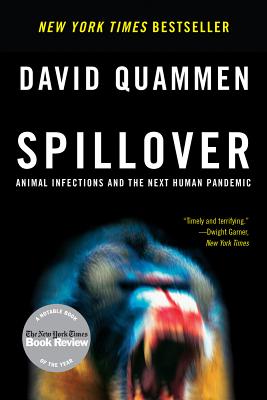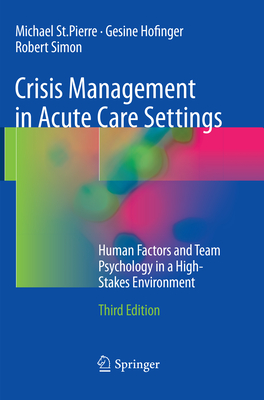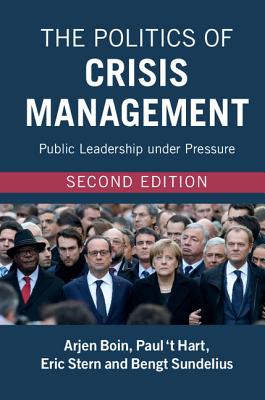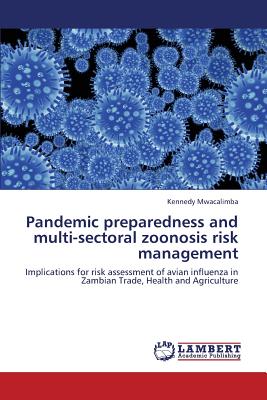How do you manage the Covid-19 pandemic? Where do you start? Are there any blueprints for you to build on? How do you build a pandemic management team? What can historical records teach us? Why do some national leaders lead and others fail to lead? These questions and many others are answered in these books and reference materials written by real-life professionals for a time such as this.

The Plague Files: Crisis Management in Sixteenth-Century Seville. In The Plague Files, Alexandra Parma Cook and Noble David Cook recount the travails of 1580s Seville, exposing the difficult lives of ordinary people and shedding light on the challenges municipal officials faced as they attempted to find solutions to the public health emergencies that threatened the city's residents.
The Plague Files provides an indispensable resource for those studying early modern Spain.

Spillover: Animal Infections and the Next Human Pandemic. Brought to you by Penguin. A gripping, timely book about the transmission of deadly viruses from animal to human populations, and how we can tackle a global pandemic. As globalization spreads and as we destroy the ancient ecosystems, we encounter strange and dangerous infections that originate in animals but that can be transmitted to humans. Diseases that were contained are being set free and the results are potentially catastrophic. In a journey that takes him from southern China to the Congo, from Bangladesh to Australia, David Quammen tracks these infections to their source, and asks what we can do to prevent some new pandemic spreading across the face of the earth. As cases of Coronavirus grow across the globe, discover the book that predicted this viral disaster and the science that could stop the next one in its tracks.

This book is unique in providing a comprehensive overview of the human factors issues relevant to patient safety during acute care. By elucidating the principles of human behavior and decision-making in critical situations and identifying frequent sources of human error, it will help healthcare professionals provide safer, more effective treatment when dealing with emergencies characterized by uncertainty, high stakes, time pressure, and stress. The third edition has emerged from an ongoing synergistic relationship between clinicians and behavioral scientists on both sides of the Atlantic to update and enhance each chapter -- blending the strengths of the two professions into a readily accessible text. Among other improvements, readers will find sharper articulation of concepts and significantly more information on the organizational impact on individual and team performance. Crisis Management in Acute Care Settings is the required reference for all who are learning about, teaching, or providing acute and emergency healthcare. It will be of high value for undergraduate and graduate medical and nursing program and offer a much-needed resource for those who use high-fidelity healthcare simulation to teach teamwork.

The Politics of Crisis Management: Public Leadership Under Pressure. A unique and comprehensive analysis of the special nature of political and public leadership in major crises.
![]()
"From the author of The Fever, a wide-ranging inquiry into the origins of pandemics Interweaving history, original reportage, and personal narrative, Pandemic explores the origins of epidemics, drawing parallels between the story of cholera-one of history's most disruptive and deadly pathogens-and the new pathogens that stalk humankind today, from Ebola and avian influenza to drug-resistant superbugs. More than three hundred infectious diseases have emerged or reemerged in new territory during the past fifty years, and 90 percent of epidemiologists expect that one of them will cause a disruptive, deadly pandemic sometime in the next two generations. To reveal how that might happen, Sonia Shah tracks each stage of cholera's dramatic journey from harmless microbe to world-changing pandemic, from its 1817 emergence in the South Asian hinterlands to its rapid dispersal across the nineteenth-century world and its latest beachhead in Haiti. She reports on the pathogens following in cholera's footsteps, from the MRSA bacterium that besieges her own family to the never-before-seen killers emerging from China's wet markets, the surgical wards of New Delhi, the slums of Port-au-Prince, and the suburban backyards of the East Coast. By delving into the convoluted science, strange politics, and checkered history of one of the world's deadliest diseases, Pandemic reveals what the next epidemic might look like-and what we can do to prevent it"

Pandemic Preparedness and Multi-Sectoral Zoonosis Risk Management. This book examines the links between policy, zoonoses, and risk in Zambia and assessed the feasibility of a World Organisation for Animal Health (OIE) risk analysis in informing risk management in this context. The analysis demonstrates how external international agendas had considerable influence on pandemic preparedness policy in Zambia, prioritizing the involvement of health and agricultural actors in the policy process and excluded those from trade and other sectors. In using the OIE risk analysis approach, this book suggests weighing both local policy and ecological configurations in assessment of risk and the design of zoonotic disease mitigation policies. While feasible, the merits of an OIE risk analysis in informing policy development in this context would be enhanced by a careful consideration and inclusion of policy processes. An objective and discursive approach to analysis of risk, appropriately communicated to stakeholders, would improve collaboration in disease management across sectors.

Crisis Management: Resilience and Change. Modern organizational crises are complex, diverse, and frequent. Ineffective crisis management can result in catastrophic loss. Crisis Management: Resilience and Change introduces students to best practices for preventing, containing, and learning from crises in our global, media-driven society. While covering the strengths of existing works on crisis management, such as systems, leadership, communication, and stakeholder perspective, this innovative new text goes beyond to include global, ethical, change, and emotional aspects of crisis communication. Using her proven transformative crisis management framework, Sarah Kovoor-Misra illustrates how organizations of all sizes can be adaptable, proactive, resilient, and ethical in the face of calamity.
